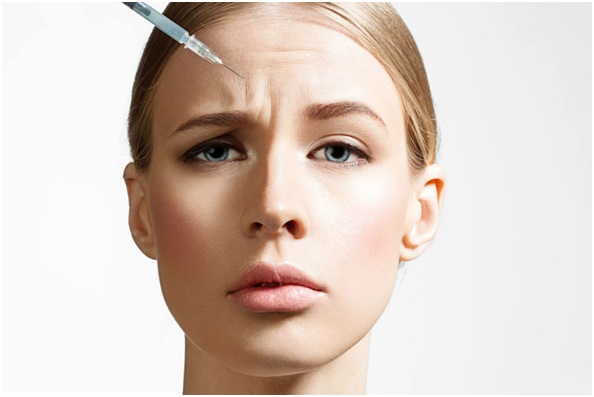Some people like to convince others that Botox is dangerous. Botox is a toxin and it is dangerous is large doses. However, doctors know this fact and they implement just a small dose in their patients. If done correctly, it makes a great difference for the person receiving the treatment.
Why people are doing it? Because after some time, the skin of the humans’ age and turns into something that is no longer attractive. It loses the softness, elasticity, and all the other factors that make it attractive. See how skin ages here.
The Botox blocks the nerves that are doing this change. With it, the skin doesn’t age as it usually does. It makes it look like time stopped and the process is not happening.
The procedure is actually injecting a chemical inside the skin, usually the face, where the nerves show the highest difference from young people to aged ones. However, the toxin doesn’t last forever. After some time its effect disappears and it needs to be done all over again.
It’s a fact that it’s good for the body because a longer period of it inside can cause harm. This way, the person who likes the effects of it can do the procedure over and over for as long as they want without having the fear that something can go wrong.
Are there dangers from it?
This is a question that many people want to know. Is it dangerous? A lot of people hear the fact that high doses of it can be deadly. Still, they are not aware that the amount of toxin is far from the amount that is needed for someone to die.
If you’re afraid that something can happen, then it would be best if you search for a professional doctor that will know exactly what you’re doing. For example, you should choose Botox at Visage in Winnipeg if you live there because they are the most experienced ones in the area. The same goes for wherever you live, choose those who are the most experienced.
When it should be done?
Dermatologists argue about this issue and you can find many different ideas about it. Most dermatologists agree that there are two points in life when it should be done. The first time is before the age of 30 when the nerves are still in perfect shape.
Why? To prevent them from starting the aging process and maintain a longer young look. When you start feeling tired or unhappy, your face frowns and makes those lines that over time become visible no matter what you do. This way, you prevent the process.
The second time is after you make 40. This is the time when you have already formed the lines and your face looks tired. The procedure changes this and makes a younger look again. There are some strange moments, like not being able to form a natural smile but this is not a rule.

Are there side effects?
As we said, some people are afraid that it is fatal. However, the worst thing that can happen and something that doctors noticed is bruising or headaches. That’s nothing for getting some great looks, right? See why people love great looks here: https://www.psychologytoday.com/us/blog/wander-woman/201107/why-women-have-care-about-their-looks.
Sometimes droopy eyelids can happen. Just like the problem with the smiling we mentioned above, it’s a problem for those who did the procedure too often and with a higher dosage. If you do it in the average numbers, then you won’t have a problem of any kind.
Conclusion
Some of the most important issues and features of the Botox were mentioned in the content above. If you’re wondering how it will work for you, it’s best to try it once and see what happens. Be sure that there’s no greater risk for your life, so you should worry.
Actually, around 7 million procedures were made in the US in 2016. The numbers are just grown since then. If you want to do it, you’ll be one of the millions of happy clients to the clinic you’ll choose.
Still, make sure you pick the right doctor for you. Choose an experienced person who knows what is doing. Someone who already made a lot of procedures before you. If you do that, be sure that you’ll be happy.


